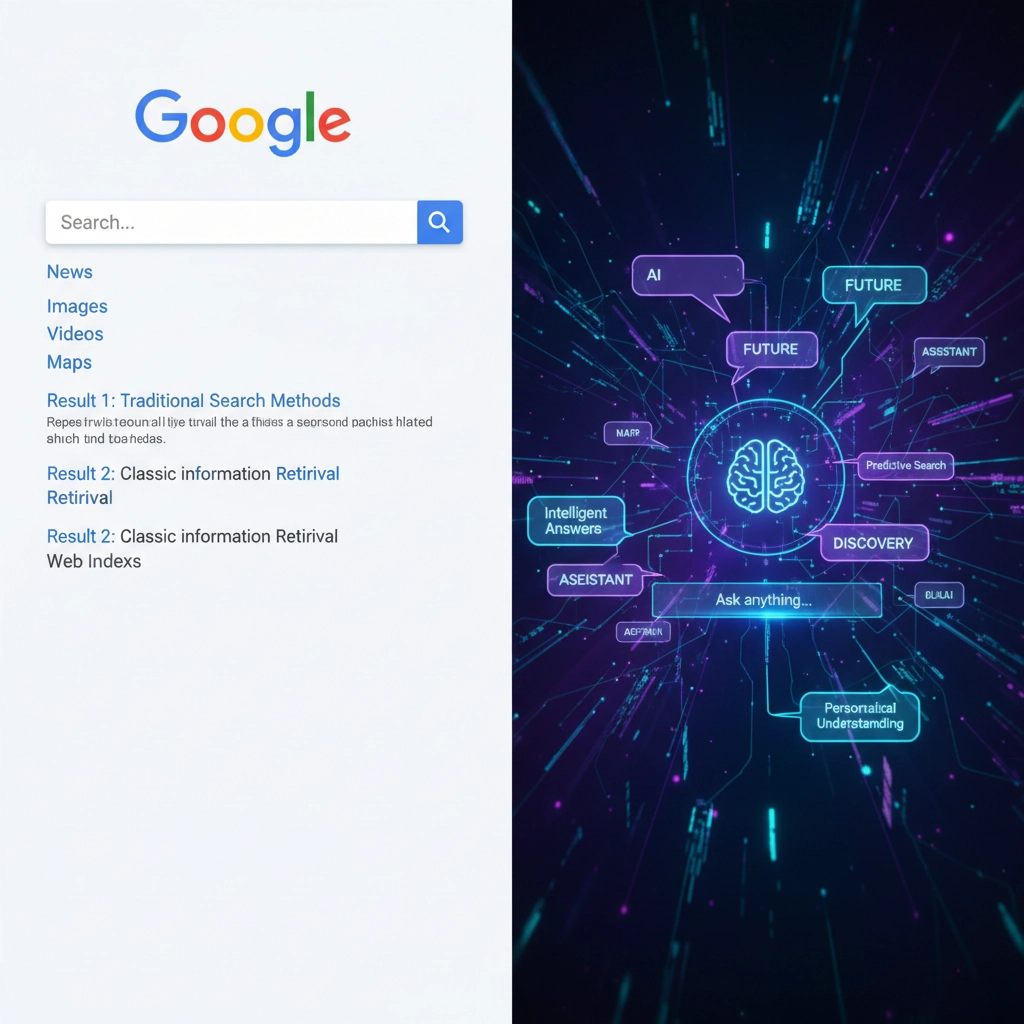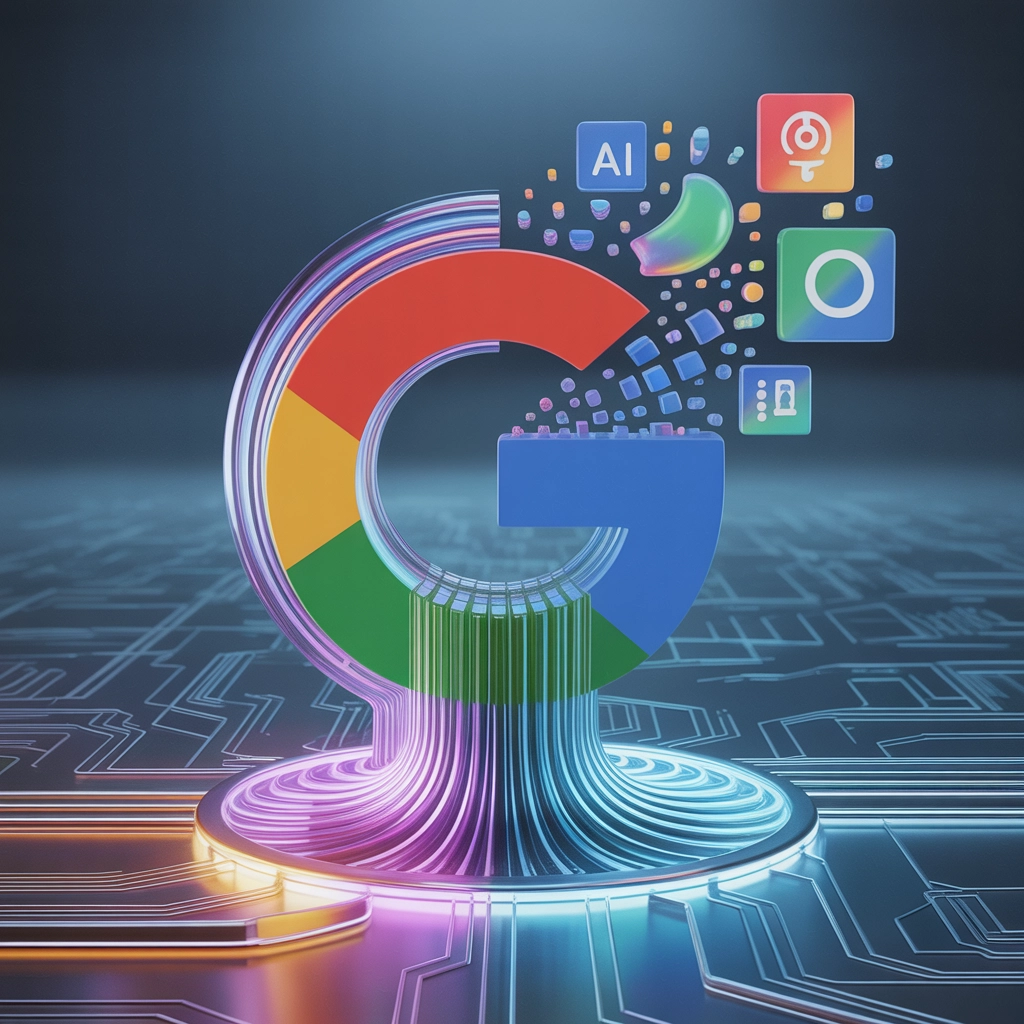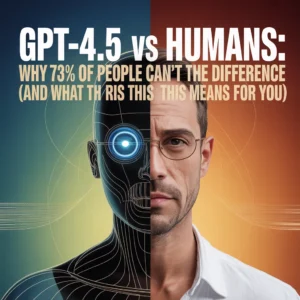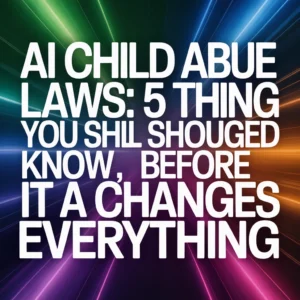Remember when everyone said email would kill the post office? Or how Netflix would destroy movie theaters? Well, here's the latest death prediction: traditional search engines are supposedly dying in 2025. But here's a plot twist that might surprise you – Google just processed 16.4 billion searches yesterday. Yeah, you read that right. Billion. With a B.
So what's really happening in the search world? Let's dig into the actual data and see if Google's getting ready for its funeral or just dealing with some growing pains.
Google's Still the King (But the Crown's Getting Wobbly)
Here's the thing – Google isn't just surviving in 2025, it's still absolutely dominating. The search giant controls 93.05% of global organic traffic, which means that out of every 100 people looking for something online, 93 of them are still typing into that familiar white search box.
But here's where it gets interesting. That number dropped from 94.80% in 2024. Now, a 1.75% drop might not sound like much, but when you're dealing with Google's scale, that's millions of searches shifting elsewhere every single day.

Where are those searches going? Well, Bing's having its moment. Microsoft's search engine jumped from 3.51% to 4.61% in just one year. That's a 31% increase, which sounds way more impressive when you put it that way, right?
Even the smaller players are grabbing their piece of the pie. DuckDuckGo, Ecosia, and Yahoo are all seeing growth. Ecosia actually overtook Yahoo for fourth place globally – apparently, people really do want their searches to plant trees.
My friend Sarah perfectly captures this shift. She's a marketing manager who swore by Google for everything. But last month, she started using Bing for work research because "it gives me different perspectives on the same topics." She's not abandoning Google entirely, but she's definitely not as loyal as she used to be.
The AI Uprising That Wasn't (Yet)
Everyone's been talking about ChatGPT and Perplexity "killing" Google search. The reality? These AI search tools represent just 0.13% of global search traffic. That's like worrying about a paper cut while ignoring the elephant in the room.
But don't dismiss AI search entirely. That 0.13% is actually four times higher than it was in 2024. The growth trajectory is real – it's just starting from practically zero.
Here's what's really fascinating: 99% of people who use AI search platforms still use traditional search engines too. It's not replacement; it's addition. People aren't choosing between Google and ChatGPT – they're using both for different things.
Think about your own behavior. When you want to find a specific restaurant's hours, you Google it. When you want to understand a complex topic or need creative ideas, you might ask ChatGPT. Different tools, different jobs.

The numbers back this up. Google users still perform about 200 searches per month, while Perplexity users only do about 15 searches monthly. It's clear which platform people rely on for their heavy lifting.
Why Your Clicks Are Disappearing
Now here's where things get tricky for website owners. Even though people are still searching on Google like crazy, they're not clicking through to websites as much. Welcome to the world of "zero-click searches."
80% of consumers now rely on zero-click results for at least 40% of their searches. That means Google's answering questions directly on the search results page, so people never need to visit your website.
When Google shows AI summaries, users only click through to traditional results 8% of the time. Compare that to 15% when there's no AI summary. That's a massive difference for anyone trying to get traffic to their site.
Here's what's driving this trend:
• AI Overviews that answer questions directly
• Featured snippets that show key information upfront
• Knowledge panels that display facts without requiring clicks
• Local business info that appears directly in search results
• Shopping results that let you compare prices instantly
This shift is hitting hard. Average global organic traffic dropped from 58.11% in 2024 to 52.19% in 2025. That's nearly 6% fewer clicks making it to websites, even though search volume is staying strong.
What This Means for You
So are traditional search engines dead? Absolutely not. But they're definitely evolving into something different. Google's transforming from "10 blue links" into a smart assistant that tries to answer your questions directly.

For regular users, this is mostly good news. You get faster answers without clicking through multiple websites. For businesses and content creators, it's more complicated. You need to adapt your strategy to get featured in those AI summaries and zero-click results.
The SEO world isn't dying – it's just getting more complex. Instead of optimizing for rankings alone, smart marketers are now focusing on Generative Engine Optimization (GEO). That means creating content that AI systems want to cite and reference.
Traditional search engines are becoming more like helpful librarians than simple filing systems. They're not just showing you where information lives – they're reading it, understanding it, and summarizing it for you.
This evolution makes sense when you think about it. Why should you have to visit five different websites to understand a topic when AI can synthesize the key points for you? The convenience factor is huge.
The real question isn't whether people still use Google in 2025 (they absolutely do), but how Google's changing to stay relevant in an AI-powered world. And based on those 16.4 billion daily searches, they seem to be doing just fine.
What do you think – are you searching differently than you did a year ago, or are old habits still ruling your online behavior?







